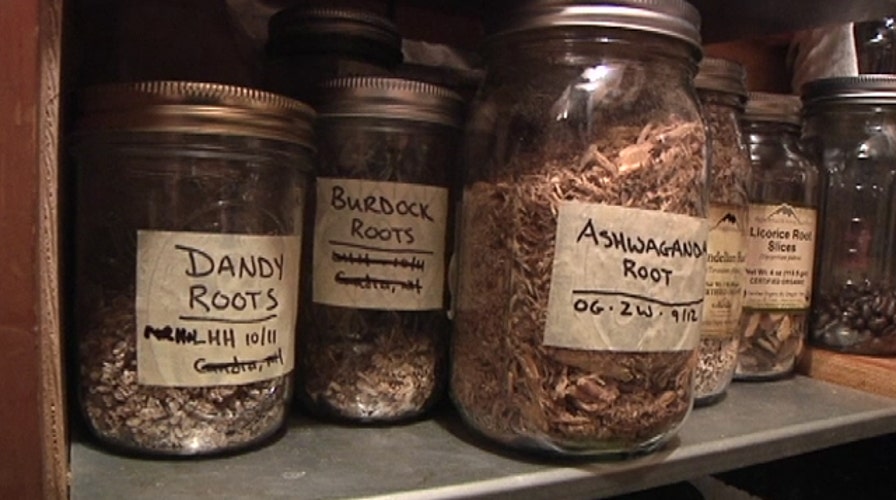Health Care Hikes Put Herbs in the Spotlight
With rising costs in health care, families are paying more out of pocket for doctor visits and common medications.
With rising costs in health care, families are paying more out of pocket for doctor visits and common medications.
Today, a trip to the doctor for the common cold can set you back an average of $740, before insurance deductions. Analysts say that health care costs will continue to rise, and reforms tied to the Affordable Care Act could mean a 32 percent cost increase for families across the board.
In order to cut back, families are considering more natural remedies to soothe ailments, making alternative medicine more popular then ever.
Clinical herbalist, Maria Groves, of Wintergreen Botanicals, LLC, in Allentstown, N.H., teaches families how to use home-grown herbs for their everyday needs and said that more families are interested in herbal remedies then ever before.
“The idea of getting things back into their own hands was really important," said Groves. "And being able to cut down costs in the long run, being able to take care of themselves and their families was really important – and herbs do really well for most…common illnesses.”
Groves also said that using herbal remedies may be better for you than most common medications you can find at the drug store, but noted that it's important you do your research before administering any herbal remedies to yourself or your family.
“Herbs, I think, are much more effective than over-the-counter remedies.," said Groves. "Most over-the-counter remedies are just masking symptoms, and usually they are suppressing the immune system. So in the long run, they are making you feel more comfortable, but they are not actually helping.”
As cold and flu season approaches, Groves noted that there are several herbs that are safe and effective for the whole family, including elderberry.
“What elderberry seems to do is block out those receptor sites that viruses use to get into the body,” she said.
Using the right herbal treatments can be an easy, inexpensive and effective way to save a trip to the doctor and time sitting in the waiting room with other sick patients.
Two popular remedies are echinacea and birch bark. Echinacea is used to treat the common cold, helps stimulate immune response and supports white blood cell mobility to help combat infection. Birch bark is a naturally occurring anti-inflammatory, and a natural source of aspirin often used to treat headaches.
For beginners who are looking for a safe and easy introduction to herbal remedies, Stacia Eastman, a mother living in Allenstown, N.H., recommended using herbs that are already in your kitchen.
“A lot of things you can just slip in the food," said Eastman. "And those are the safe things that I find, as a mom, that’s the easiest way. And yes, it's easier to give them honey than it is to give them cough syrup”
Eastman said that this season, she has given her children extra zinc and uses valerian root to help ward of headaches and restlessness.
While herbs do have their benefits, others say that natural remedies are no replacement for the doctor.
“Herbal medicine can be extremely strong," said Teresa Downey, an herbal enthusiast and student at Wintergreen Botanicals, LLC. "And by taking the wrong dosage or the wrong thing you, you can actually do harm, and the idea is to do no harm.”
Pediatric dietician, Linda Weiss, said that when it comes to herbal remedies, its all about balance.
“I like the idea of balancing things and not having kids on a lot of strong medications if not necessary.”
You should always talk to your doctor before starting an herbal regimen – especially if you are on any other medications, as some may have interactions with herbal remedies.

